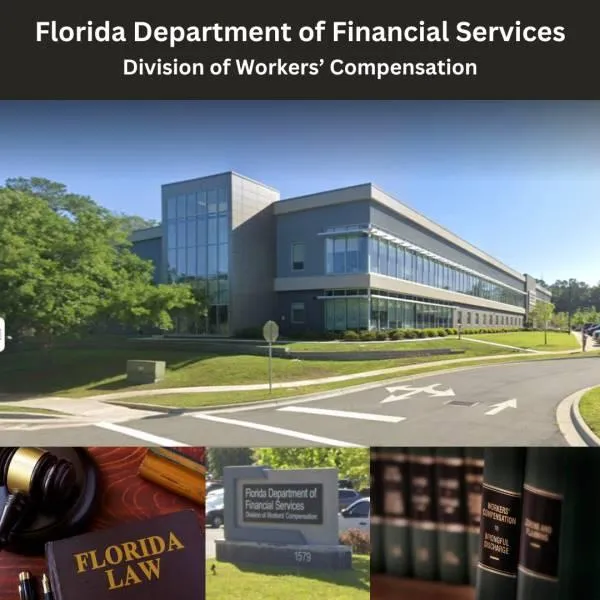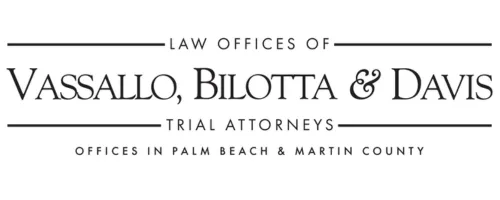FLORIDA WORKERS' COMPENSATION LAWS
Florida Workers’ Compensation Law Explained

Florida Workers’ Compensation Law is a no-fault system. The intention of the law was to provide injured workers lost wage and medical benefits while providing the employer protection from lawsuits outside of workers’ compensation opening up the employer to liability and punitive damages. This is why employers have what is known as workers’ compensation immunity. While the work comp laws were designed to be a self-executing system, the process to petition for benefits is not always easy. Hiring a Florida workers’ compensation attorney can help make the process easy. Work comp attorneys work on contingency, which means they do not get paid unless they secure a benefit. The law requires the employer/carrier to pay the work comp lawyer for benefits secured that are not timely provided. If you would like legal experts to help you with your workers’ compensation claim as soon as you were hurt at work or if you want to wait until a claim has been denied, a West Palm Beach workers compensation law attorneys can help secure you the work comp benefits you deserve.
Workers’ Compensation as an Exclusive Remedy in Florida
If you are hurt at work and injured in on the job and in the course and scope of your employment, pursuing a workers’ compensation claim may be your only option. As a general rule, an injured worker may not sue their employer for negligence or any losses that aren’t covered by your workers’ compensation benefits. There are exceptions for instance if it can be proven that injury was virtually certain or the employer intended to injure you. Otherwise, your recovery and damages will be limited to the medical and compensation benefits you are entitled to under the work comp law.
Filing a Workers’ Compensation Claims or a Personal Injury Claim
In a work comp case, an injured worker may receive benefits without proving that someone else was negligent. This is different than the burden of proof in a personal injury case. In a personal injury case, the injured party often must prove who was at fault and that the other party was negligent in order to receive compensation. If you were hurt at work, the general rule is that your employer has workers’ compensation immunity and the employer is only required to provide benefits under the work comp laws. You can pursue a workers’ compensation claim even if your workplace injury was due to your own negligence. Even if you can prove that your employer was negligent, you may still be limited to work comp benefits. If you can prove that your injury was virtually certain or that your employer had an intent to injure you, you may be able to pursue a personal injury claim against your employer. You are not limited to pursuing a personal injury claim against a 3rd party. This means that you can file a workers’ compensation claim and a personal injury claim if a 3rd party caused your work accident and injuries. Pursuing a negligence claim and work comp claim can be beneficial since you can allege pain and suffering in a personal injury claim. While you have a personal injury claim, often work comp will pay you lost wages and medical benefits. The workers’ compensation system was designed to help alleviate delays and stress. However, all too often the employer/carrier refuses to provide the injured worker the benefits they deserve. In most cases, Employers are required pay for workers’ compensation insurance coverage for their employees. This allows injured workers to receive compensation benefits and medical benefits regardless of whose fault it was as accidents happen.
Workers’ Compensation Covers Physical and Mental Injuries
Workers’ compensation provides benefits for those who are unable to work due to injuries such as broken bones, spinal injuries, or torn ligaments and tendons. Work comp also provides coverage for mental health issues as long as they are causally related to the physical injury you have suffered from the work accident. If you did not suffer a physical injury resulting from a work accident, workers’ compensation will not cover stress, depression, anxiety, or other mental health issues, even if they are caused by
your employment. This limitation does not apply to first responders. Florida law covers mental injuries of firefighters, police officers, EMTs, and other first responders without the requirement of a work related physical injury so workers’ compensation benefits are available to first responders suffering from post-traumatic stress disorder (PTSD) as a result of their employment without an accompanying physical injury.
Talk to a Florida Work Accident Attorney Today
Injured workers have a right to medical and compensation benefits under the workers’ compensation laws in Florida. Unfortunately, the law is complex and receiving and requesting work comp benefits can be complicated. The workers’ comp attorneys at Vassallo, Bilotta and Davis can help you get the work comp benefits you need.
The sooner you call, the sooner we will be able to help. To schedule a free consultation, contact us at 561-471-2800.
